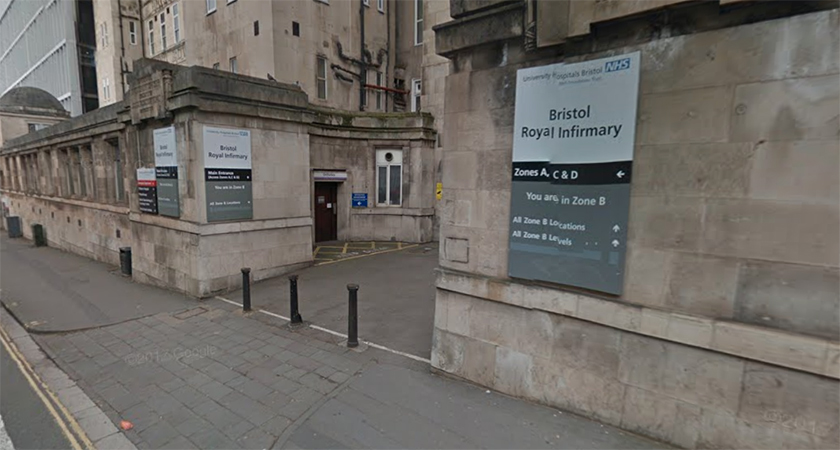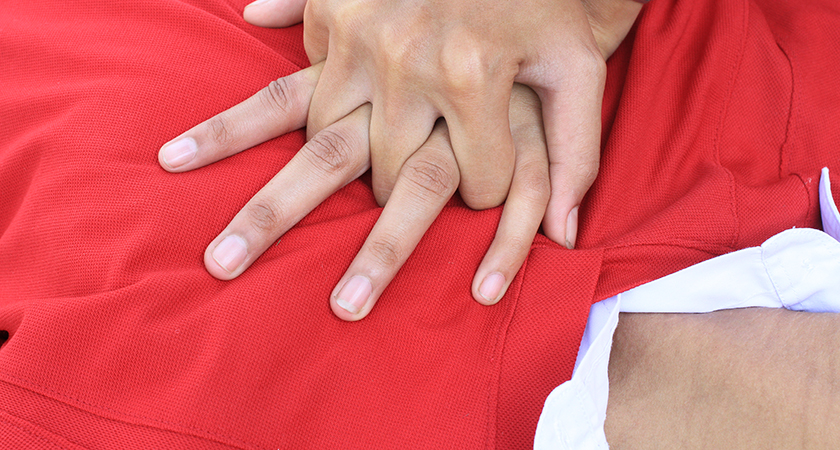IRISHMAN Chris Hickey's heart stopped for over an hour, but his wife's quick thinking and pleas with paramedics saved his life.
While the Air Ambulance doctor said there was nothing they could do, the 63-year-old's wife of 38 years Sue pleaded with them to keep trying to resuscitate him.
After 68 minutes of CPR and 12 attempts to restart his heart with a defibrillator, Mr Hickey's heart finally beat into life.
Speaking to The Irish Post, he said: "It was a normal Friday morning last June. My wife was downstairs making a cup of tea and heard strange noises coming from the bedroom.
What she heard was Mr Hickey struggling to breathe, and by the time she came upstairs both his breathing and heart had stopped.
"From her point of view I was gone," Mr Hickey said.
Dialling 999 immediately, the call operator told Mrs Hickey to put her husband on the floor and instructed how to give CPR.
Five minutes later, the fire service arrived and took over, followed shortly after by paramedics and the Air Ambulance with a doctor.
But after his heart had stopped for 55 minutes, the doctor told Mrs Hickey that there was no more they could do.
"He came down stairs to my wife and said 'he’s gone, there’s nothing we can do,' but my wife pleaded with them and said 'Please, try a bit more, this is a man who loves life and is part of a big family, please try again.'
"He went back upstairs, and worked on me for another 10 minutes and my heart started again," he said.
The Cheltenham-based father-of-one was then taken to Bristol Royal Infirmary were his body temperature was lowered and he was placed into an induced coma in the intensive care unit.
 Chris Hickey, 63, was taken to the Bristol Royal Infirmary where he was placed in an induced coma. (Picture: Maps)
Chris Hickey, 63, was taken to the Bristol Royal Infirmary where he was placed in an induced coma. (Picture: Maps)His family - including his sister in Dublin, brothers in Bristol and London and his daughter in Berlin - were then assembled in the hospital.
"They all had a very traumatic weekend, I was unconscious and not aware of this at all.
"The doctors said 'Get everyone together because when we bring him out of the coma, he may be gone as he was without oxygen for so long.'"
Thankfully, once Mr Hickey - who was born in Britain before moving back to his father's native Dublin - had come round from the coma, he could say his name and date of birth, and was later placed on an ordinary ward just days later.
"They then put an Internal Cardiac Device - an ICD made in Clonmel, Co. Tipperary - in my chest which acts like a defibrillator if my heart stops.
"After that I was firing on all cylinders saying, 'Right let’s go, let’s get out of hospital,' but they tried telling me no, you nearly died, and I said ah get out of that! I was completely impatient to get out."
Further cognitive testing proved that Mr Hickey was fine, but says he can't quite trust his body just yet.
"I’m now back at work full time, and sailing at the weekends, but I can’t quite trust my body yet, it’s too soon.
"The doctors said I'm fine, to go back to the gym, go sailing, run a marathon, there is nothing I am prevented from doing, but it’s like a broken plate: even though you know it’s been superglued together, I can still see the crack."
 Sue Hickey's quick thinking to perform CPR gave him a chance at survival. (Picture: iStock)
Sue Hickey's quick thinking to perform CPR gave him a chance at survival. (Picture: iStock)However, both Chris Hickey and his doctors say he is lucky his wife Sue started CPR when she did.
"I asked the doctor how my heart stopped for so long but I had brain function, and they said the main thing was my wife started CPR immediately, and if you start it quick enough that gives you a chance.
"If she hadn’t started within a minute, then there’s no way I would have made that much of a recovery.
"I’m lucky beyond words that my wife did CPR when she did, and lucky that everyone else turned up as well," he said.

